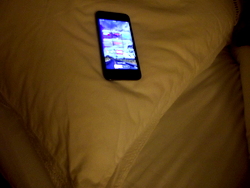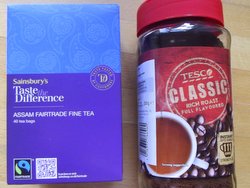Introduction

Insomnia is a term covering a number of disturbances to our normal sleeping pattern. Some people may for example, have difficulty going off to sleep in the first place, while others wake during the night and may be unable to sleep soundly thereafter. Whatever the pattern, chronically disturbed sleep means waking unrefreshed, and makes it hard to function properly during the day. It also undermines our vitality and full enjoyment of life.
Insomnia is associated with weight gain in some individuals, because it can trigger release of the hunger hormone ghrelin, while suppressing release of leptin which controls appetite. Higher rates of type 2 diabetes have been found in people routinely sleeping less than six hours a night.
It is also significantly more common in women, due to the lifetime challenges which acupuncturists recognise face women.
Shift work has been shown to be unhelpful too, with 51% of people who work nights exhibiting at least one sleep disorder (1).
Acupuncture can aid restful sleep. Actress Julie Walters describes how she tried acupuncture after thirty years of badly disrupted sleep: “On that very night, I slept through without waking, and the next morning, I cried and cried, grieving for what I had missed.” Singer and actress Toyah Willcox, has had acupuncture over the past thirty years, and has talked in the media about her very positive experience of acupuncture for insomnia. Actress Julianne Moore said,“I had a period after my mother died where I couldn’t sleep….I was just a wreck. I had some really intense acupuncture treatments, and it reset my nervous system.”
Prescribed Medication
If you have been taking medication to help you sleep, then that is usually no barrier to receiving acupuncture. You may have been prescribed small amounts of drugs like zopiclone or zimovane. GPs are reluctant to supply anything more than limited quantities because they are not intended for long term use, and tolerance can develop in three to fourteen days. Under such circumstances, acupuncture may effectively fill the gap left by a lack of further treatment options.
Acupuncture
When you come to see me about insomnia, my first step is to ascertain exactly how your sleep is disturbed. You might identify with some of the patterns I commonly encounter:
– Do you find it difficult to go off to sleep at the very start of the night. Is a busy mind part of the problem? Your thoughts may be around worrying or stressful issues, or they may hop incessantly from one inconsequential topic to the next.
– Conversely, is your mind peaceful, and yet it is still hard to drop off to sleep in the first place?
– Or are you someone who can go to sleep fairly easily, but who then wakes in the early hours? If you wake at broadly the same time most nights, then the time can be of significance to me.
– Do you sleep for most of the night, but restlessly, perhaps due to disturbing dreams, feeling hot etc? Is chronic pain affecting your sleep? If so, we should look at that as well.
Your answers to these questions provide useful pointers, and coupled with information about your general health and wellbeing, I can start to draw some conclusions about the causes of your insomnia. Sessions would in most cases be weekly, for a fixed period. If your insomnia stems from stress or worry, then we can try to address that too.
Sleep Hygiene
It is also helpful to look at lifestyle and see whether there are any useful steps you can take for yourself. These depend on the type of insomnia you have, but may include a calming ritual before bedtime, and being choosy about any television or other stimulation in the evening. The ten o’clock news might not be the best choice if you wish to promote the harmony of spirit which is conducive to sound sleep! We can also look at exercise, relaxation and stress management if relevant.
Restricting the light intensity to which you are exposed in the last hour before going to bed, may also help. This may mean not sitting in front of your computer too late (which is mental stimulation as well of course), and using dimmer lighting in your living and bedroom.
 The screens of laptops, tablets and smartphones are unhelpful to be looking at, because they emit a lot of light at the blue end of the spectrum. This is the most disruptive part of the spectrum for our sleep, because it delays the release of melatonin, the hormone associated with the onset of sleep. Some device screens have blue light filter or night modes to try to get around this problem, but don’t overlook the fact that it’s still a relatively bright light source close to your face, and it remains a form of mental stimulation.
The screens of laptops, tablets and smartphones are unhelpful to be looking at, because they emit a lot of light at the blue end of the spectrum. This is the most disruptive part of the spectrum for our sleep, because it delays the release of melatonin, the hormone associated with the onset of sleep. Some device screens have blue light filter or night modes to try to get around this problem, but don’t overlook the fact that it’s still a relatively bright light source close to your face, and it remains a form of mental stimulation.
 Caffeine is a substance whose levels fall quite slowly in the body: only half has been cleared after five hours or so. You may be someone who should have less overall, and who shouldn’t have any caffeinated drinks from lunchtime onwards. Remember that chocolate contains caffeine, and also theobromine which is another stimulant,
Caffeine is a substance whose levels fall quite slowly in the body: only half has been cleared after five hours or so. You may be someone who should have less overall, and who shouldn’t have any caffeinated drinks from lunchtime onwards. Remember that chocolate contains caffeine, and also theobromine which is another stimulant,
Do not eat too late. If work and other commitments permit, try to have a preferably light evening meal by around 6pm.
Avoid alcohol in the evening. Although it may help you to fall asleep initially, it is likely to give you a more restless night overall.
Reserve your bedroom for sleep and try not to use it for exercise or as an office. That way, you benefit from a subtle psychological cue on entering, that this is a room associated with sleep. Try also to keep the bedroom temperature slightly lower than that in the rest of the house. A little drop in the body’s core temperature is physiologically important for us to fall asleep.
If you cannot sleep for things on your mind, try getting up and writing them down on a list, so that they are out of your head.
Finally, ensure you take enough exercise: see my item on coastal walking and sleep by scrolling down through the Longevity & Health section.
Nutritional Considerations

I mentioned above under screen use, the sleep hormone melatonin. In order to synthesise enough of this, we need dietary magnesium (to convert serotonin to melatonin), several B vitamins, zinc, and the essential fatty acids EPA and DHA found in oily fish like salmon. There are also foods which contain melatonin such as kiwi, nuts, seeds, eggs, milk, cereals, mushrooms and cheddar cheese. One study found that two kiwi fruit consumed an hour before bedtime, improved sleep quality.
In addition, consume at least 50 to 75g of protein spaced across the day (poultry, fish and dairy are good), to ensure a supply of the amino acid tryptophan which is an important building block for serotonin and melatonin. Research even suggests a correlation between a healthily diverse gut microbiome, and good quality sleep.
 Research (2) has also been done to try to link the various characteristics of poor sleep, with specific nutritional deficiencies: low vitamin C – insufficiently-refreshing sleep; low vitamin D – difficulty staying asleep; low selenium – difficulty falling asleep; low calcium – difficulty falling asleep & insufficiently-refreshing sleep.
Research (2) has also been done to try to link the various characteristics of poor sleep, with specific nutritional deficiencies: low vitamin C – insufficiently-refreshing sleep; low vitamin D – difficulty staying asleep; low selenium – difficulty falling asleep; low calcium – difficulty falling asleep & insufficiently-refreshing sleep.
Summary
Please do call me to discuss your situation or to arrange an appointment. Below you can read the results of some of the research which has been undertaken into acupuncture for sleep problems. The trials vary in quality, but systematic reviews and randomised controlled trials are generally considered to provide the highest quality evidence. If you would like to read more about evidence quality, I would refer you to the British Acupuncture Council’s description of the evidence pyramid.
(1) Shift work is associated with extensively disordered sleep, especially when working nights. Frontiers in Psychiatry, 07 December 2023.)
(2) Sleep symptoms associated with intake of specific dietary nutrients. Journal of Sleep Research, 2 September 2013.)
